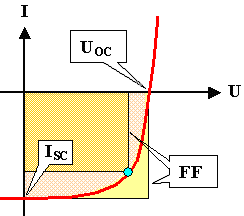 |
A solar cell converts light power into electrical power. It's overriding parameter
is the over-all conversion efficiency h |
|
Important "raw" numbers.
- Maximum h Si solar cell » 25 %
- Maximum sun power » 1 kW / m2.
- Maximum commercial solar cell power » 200 W / m2.
- Yearly average commercial solar cell power »25 W / m2.
|
| Solar cell science and technology centers exclusively on moneyand
saving the earth! |
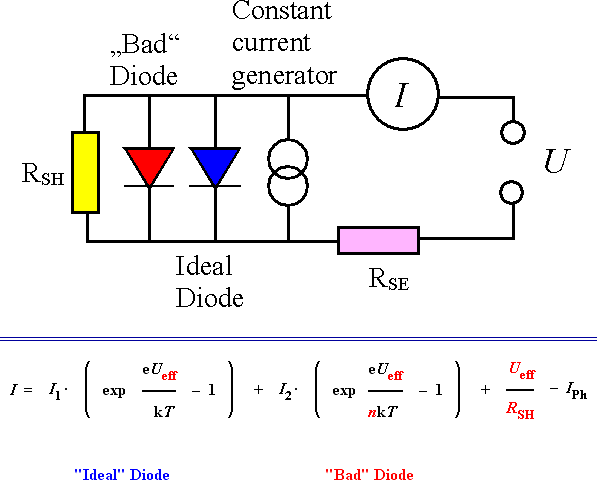 |
| h | = |
const · UOC · ISC· FF |
|
|
|
 |
Any solar cell is essentially a large -area junction, usually of the pn-type. |
|
|
 |
It's essential parameter are the short-circuit current ISc, the open-circuit
voltage UOC and the fill factor FF |
|
|
 |
For optimal efficiency the bandgap Eg should be matched to the solar
spectrum; we need around 1.5 eV. | |
|
 |
Maximum efficiency from the semiconductor physics point
of view is achieved if all light with energy >=Eg produces minority carriers and all
of these carrier are swept out as diode reverse current and |
|
|
 |
Maximum efficiency from the module systems point of view
is achieved if the semiconductor part is OK, only very little light is reflected by the solar cell module, series
resistances and shunt resistances can be neglected, and everything is uniform and homogeneous |
|
|
The equivalent circuit diagram with the basic equation has is all! |
|
|
 |
Series and shunt resistances, unavoidable for large areas, are of overwhelming importance
for solar cells with h <» 10 % |
|
| |
| |
|
|
|
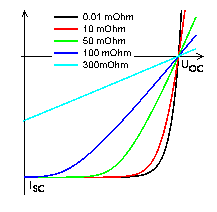
Effect of series resistance |
| |
| |
| |
|
|
|
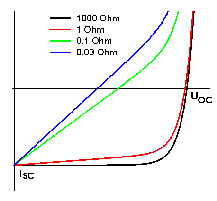
Effect of shunt resistance |
| |
| |
| |
|
 |
Switching solar cells with individual characteristics in series and / or in parallel
causes all kinds of problems. | |
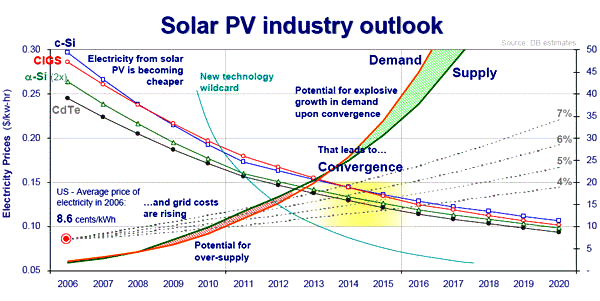
Courtesy Deutsche Bank |
|
|
 |
Worse: Any inhomogeneous solar cell (e.g. mc-Si solar cells) consists of locally
different solar cells "somehow" connected internally |
|
|
 |
Optimizing solar cells with respect to "money" thus provides exciting science and
engineering!
| |
 |
There are many competing solar cell technologies and materials.
- Bulk single-crystal and mc Si vs. thin film Si (a-Si:H, µc-Si:H. ..
- Other thin-film semiconductors:CIGS, CdTe, ...
- Exotica: TiO2- electrolyte ("Grätzel cell"), organic semiconductors, "Nano"
materials, ...
| |
 |
Solar cells have a bright future! |
| |
| | |
|
© H. Föll (Semiconductor Technology - Script)
